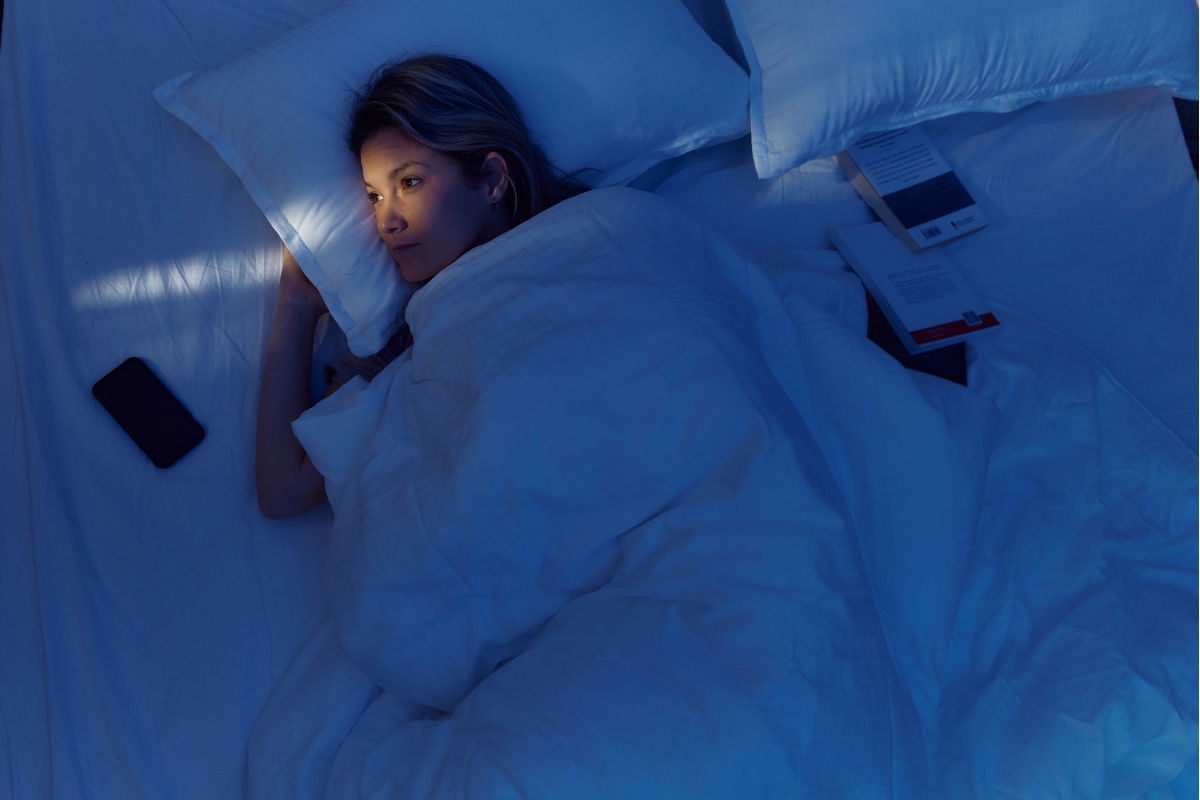What causes snoring in women? Despite the common belief that snoring primarily affects men, millions of women snore, too — many just don’t talk about it. The stigma surrounding women and snoring means that some suffer in silence, unaware of the impact it could have on their health and well-being.
So, why is this issue still such a hush-hush topic?
Why women snore and why it’s not talked about
Snoring happens when airflow is partially blocked during sleep, causing the tissues in the throat to vibrate. Whilst snoring can affect anyone, hormonal fluctuations, lifestyle factors and anatomy all play a role in what causes snoring in women.
However, snoring is still seen as an “unattractive” or “embarrassing” problem for women, leading many to downplay or ignore it. In fact, studies suggest that women underreport their snoring compared to men. This underreporting can stem from a combination of stigma and lack of awareness, with many women simply not realising the impact this can have on their overall health and wellbeing.
The hidden causes of snoring in women
So, what causes snoring in women? There are several key factors:
- Hormonal changes – Estrogen and progesterone help keep airway muscles firm and regulate breathing. When these hormones drop — such as during menopause or pregnancy — the airway becomes more likely to collapse, increasing the chances of snoring.
- Weight gain – Carrying extra weight, especially around the neck, puts pressure on the airway, making it more likely to narrow during sleep. This can contribute to both snoring and sleep apnoea.
- Nasal congestion – Allergies, colds and sinus issues can lead to blocked nasal passages, forcing mouth breathing and increasing snoring.
- Sleep position – Sleeping on your back allows the tongue and soft tissues to fall backwards, partially blocking airflow and causing snoring.
- The menstrual cycle – Hormonal fluctuations during different phases of the cycle can cause temporary fluid retention and swelling in the airway, leading to increased snoring.
Understanding what causes snoring in women is the first step in breaking the silence and finding solutions.
How snoring affects women’s health
Snoring isn’t just a nighttime nuisance — it can be a sign of underlying health issues. Loud, persistent snoring could indicate obstructive sleep apnoea (OSA), a condition where breathing repeatedly stops and starts during sleep. OSA has been linked to serious health concerns, including high blood pressure, heart disease and daytime fatigue.
Snoring is still seen as more of a “male issue,” meaning women are less likely to be diagnosed with sleep apnoea or seek treatment — despite the fact that it affects an estimated 30% of post-menopausal women.
SoundSleep app data
Did you know that women snore just as much as men? The data from our SoundSleep app shows that women and men have almost identical snoring patterns.
Women snore just as much as men on average:
- Estimated snoring time throughout the night: 35.7% (women) vs 33.6% (men).
- AHI (Apnoea-Hypopnea Index: a measure linked to sleep apnoea): 18.5 (women) vs 20.7 (men).
- Snore intensity (scale of 0-100, this measures loudness and frequency): 52.9 (women) vs 54.9 (men).
The most ‘intense’ snorer recorded was female:
- A score of 100 vs 99 for men.
Average snoring volume is almost identical:
- 36.5dB (women) vs 37.2dB (men).
This data is a powerful reminder that snoring is not a gendered issue. The outdated stigma around female snoring needs to be challenged. Women snore just as much as men and their snoring should be taken just as seriously. The SoundSleep app’s insights help to break down these stereotypes and encourage more open conversations about snoring and sleep health, regardless of gender.
Snoring solutions for women
The good news? There are effective ways to reduce snoring and improve sleep quality. Depending on what causes snoring in women, different solutions may help:
- Nasal relief – If congestion is the issue, Snoreeze Nasal Strips or Nasal Dilator can help open the airways and improve airflow.
- Oral devices – If snoring is caused by airway collapse, an anti-snoring mouthpiece such as the Snoreeze Oral Device can hold the jaw in the right position to keep the airway open.
- Lifestyle changes – Maintaining a healthy weight, avoiding alcohol before bed and sleeping on your side can all help reduce snoring.
- Sleep tracking – Using an app like SoundSleep can help women track their snoring and find the right relief products that work for them.
Time to talk about what causes snoring in women
It’s time to break the taboo. Snoring isn’t just a men’s issue — it affects women, too, and ignoring it could impact long-term health. Understanding what causes snoring in women is the first step towards better sleep, better health and more open conversations.
If you snore, don’t suffer in silence. Take the Snoreeze product finder quiz and take control of your sleep today.
Sign up for our newsletter to stay informed about our newest products and latest updates.

